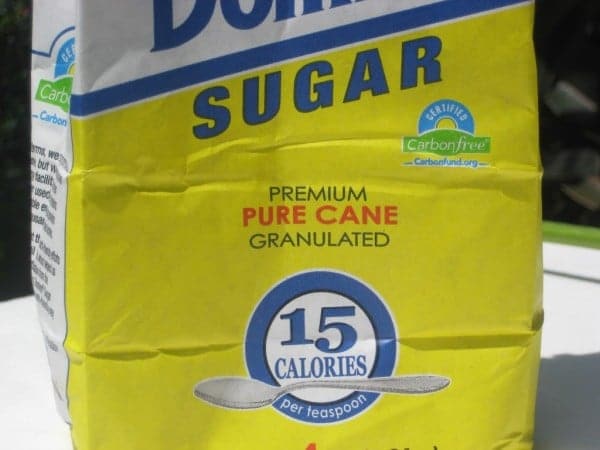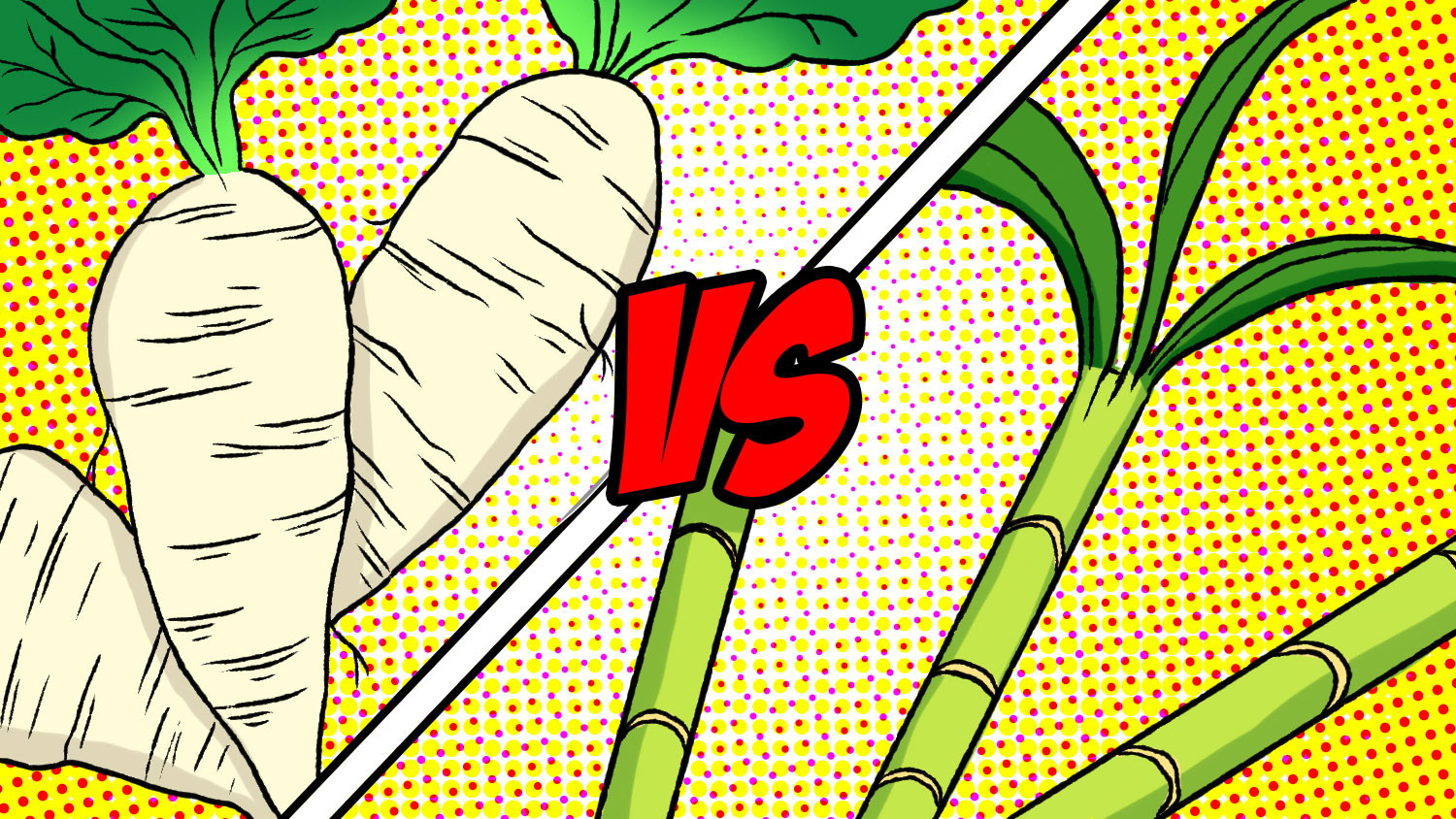Understanding Beet Sugar vs Cane: Which Is the More Sustainable Choice?
Understanding Beet Sugar vs Cane: Which Is the More Sustainable Choice?
Blog Article
The Excellent Dispute: Beet Sugar Vs Walking Cane and Their Effect On Health And Wellness
The recurring debate bordering beetroot sugar and cane sugar increases important inquiries concerning their corresponding health and wellness effects and broader effects for customer options. This discussion welcomes us to think about not just the sweetness we pick, however the far-ranging effects of those options on our health and wellness and the planet.
Introduction of Sugar Sources
Sugar, a widely taken in sugar, largely stems from 2 main resources: sugar beets and sugar walking stick. These plants are cultivated in various areas around the world, each adding to the international sugar supply in distinct means. Sugar walking cane thrives in exotic and subtropical climates, with significant producers including Brazil, India, and China. The plant is gathered for its stalks, which are after that processed to draw out juice and take shape sugar.
Alternatively, sugar beetroots are mainly grown in pleasant areas, with substantial manufacturing in countries such as the USA, France, and Germany. The beetroots are collected from the ground, cut, and based on a procedure that transforms the extracted juice into granulated sugar. While both sugar resources inevitably generate sucrose, their farming methods, refining approaches, and geographical circulations differ considerably.
These differences can influence not only the ecological effect of sugar production yet also the financial elements of sugar rates and profession. Recognizing the origins of these sweeteners is vital for policymakers and consumers alike, as it lays the structure for educated conversations about their wellness effects and sustainability.
Nutritional Contrast
When checking out the nutritional profiles of beet sugar and walking cane sugar, both sources share a comparable make-up as they largely include sucrose. Sucrose is a disaccharide, made up of glucose and fructose, and is in charge of the sweet taste connected with both sugars. The refining processes for both beetroot and cane sugar return items that are mainly pure sucrose, with minimal traces of vitamins, minerals, or other nutrients.
In regards to calorie content, both beetroot and walking cane sugars offer about 4 calories per gram. Neither kind of sugar offers substantial nutritional benefits past energy provision, as they do not have necessary vitamins or minerals. Nevertheless, the visibility of trace components, such as potassium, calcium, and magnesium, can differ slightly between the 2, primarily as a result of the agricultural techniques and soil conditions in which they are grown.
Additionally, the glycemic index values of beetroot sugar and walking cane sugar are comparable, suggesting similar effects on blood sugar levels. In general, from a nutritional point ofview, beetroot and walking stick sugars are functionally equal, adding largely to caloric intake without offering considerable wellness benefits over each other.
Health And Wellness Ramifications
The wellness effects of consuming beetroot sugar and walking stick sugar warrant mindful factor to consider, specifically given the climbing occurrence of sugar-related wellness concerns. Both kinds of sugar add similar calorie values and can cause increased dangers of weight problems, kind 2 diabetes mellitus, and cardio illness when eaten in excess. The body sugars both metabolizes right into glucose, which can create spikes in blood sugar degrees, resulting in insulin resistance gradually.
While there is continuous dispute pertaining to the glycemic index of these sugars, researches suggest that both can negatively affect metabolic health if eaten in huge amounts. beet sugar vs cane. Furthermore, the potential presence of contaminants in beetroot sugar, such as pesticides from traditional farming practices, raises additional health and wellness issues. On the other hand, cane sugar, especially when minimally processed, may use a somewhat a lot more beneficial account because of its all-natural state
In addition, the usage of sugarcoated, despite the resource, is linked check to unfavorable wellness outcomes, consisting of oral issues and fatty liver disease. As a result, moderation is vital, and people need to bear in mind their total sugar consumption from all resources, ultimately prioritizing entire foods over sugarcoated for optimal health and wellness results.
Environmental Influence
Understanding the health and wellness ramifications of beetroot and walking cane sugar also leads to an exam of their ecological impact, which can significantly affect agricultural sustainability and environmental equilibrium. Both sugar resources have distinct environmental impacts, shaped by their farming techniques and geographical needs.

In comparison, beet sugar is generally grown in warm environments and usually includes varied plant rotations. This method can boost dirt wellness and reduce reliance on chemical inputs. However, extensive beetroot farming can also cause vitamins and mineral deficiency and bug stress otherwise managed sustainably.
Both sugar types existing obstacles and opportunities for ecological stewardship. Promoting lasting agricultural methods and responsible sourcing can mitigate their impacts, making sure that sugar production straightens with ecological preservation and long-term food safety and security.
Customer Preferences
Amid growing awareness of health and environmental problems, customer choices for sugar types are increasingly influenced by understandings of wellness benefits, sustainability, and moral sourcing. Beet sugar and cane sugar each present unique features that appeal to different consumer demographics.
Health-conscious customers frequently inspect the nutritional accounts of these sugars, looking for options regarded as less refined or even more natural. Walking stick sugar, often regarded as the typical sweetener, is often favored for its regarded pureness and simpleness. In contrast, beet sugar, which is regularly acquired from genetically modified crops, faces apprehension amongst those worried regarding GMOs.
Sustainability is an additional significant element influencing customer options. As recognition of farming methods grows, several customers choose products that line up with eco-friendly farming approaches. Walking stick sugar manufacturing, especially when sourced from sustainable ranches, can attract eco-conscious buyers.
Honest sourcing plays an essential duty also, with consumers significantly preferring items that sustain fair labor techniques. Qualifications such as Fair Trade can boost the appearance of walking cane sugar on the market. Ultimately, consumer choices are formed by a complicated interaction check it out of health, environmental, and ethical factors to consider, driving need for both beet and walking cane sugars in diverse markets.
Conclusion
To conclude, the debate between beetroot sugar and walking stick sugar incorporates different elements, including nutritional profiles, wellness ramifications, and ecological consequences. beet sugar vs cane. While both sugars mostly include sucrose see page and show comparable caloric material, concerns concerning chemical usage in beetroot sugar and the eco-friendly influence of walking stick sugar monoculture warrant careful consideration. As customers significantly prioritize sustainability and health and wellness, informed choices concerning sugar intake end up being essential in advertising general health and ecological stewardship

Report this page